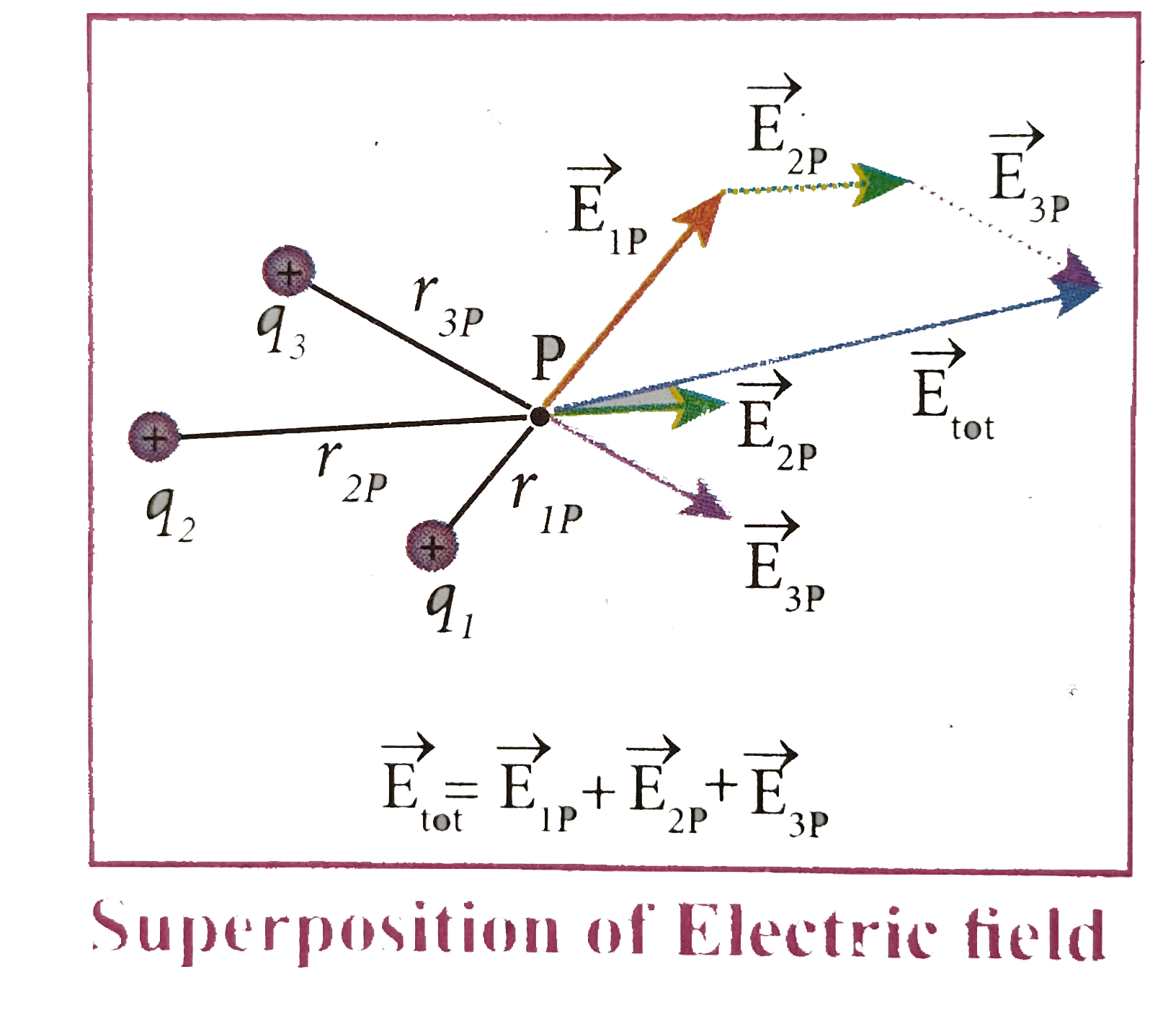Deduce an expression for the electric field due to the system of point charges.
(i) Suppose a number of point charges are distributed in space, to find the electric field at some point P due to this collection of point charges. Superposition principle is used.
(ii) The electric field due to a collection of point charges at an arbitrary point is simply equal to the vector sum of electric fields created by the individual point charges. This is called superposition of electric fields.
(iii) Consider a collection of point charges q1,q2,q3,.......,qn located various points in space. The total electric field at some point P due to all these n charges is given by
→Etot=→E1+→Ee+→E3+......+→E0 ....(1)
→Etot=14πε0{q1r21Pˆr1P+q2r22Pˆr2P+q3r23Pˆr3P+....qnr2nPˆrnP} ....(2)
(iii) Here r1Pr2Pr3P.......rnP are the distance between the point P and the charges 11Pq2P,q3P.....qnP respectively. Also ˆr1P,ˆr2,ˆr3P........ˆrnP ar the unit vectors directed from q1P,q2P,q3P,.....qnP respectively to P. Equation (2) can be re-written as
→Etot=14πε0n∑i=1(q1r2iPˆriP)
(iv) for example in Figure, the resultant electric field due to three point charges q1,q2,q3 at point P is show.
Note that the relative lengths of the electric field vector for the charges depend on relative distance of the chargs to the point P.

Similar Questions
Deduce the expression for the potential energy of a system of two point charges q1 and q2 brought from infinity to the points →r1 and →r2 respectively in the presence of external electric field →E.
View SolutionDeduce the expression for the electric filed →E due to a system of two charges q1andq2 with position vectors →r1and→r2 at a point P having position vector →®.
View SolutionApply Gauss's theorem to find an expression for the electric field intensity at a point due to a point charge.
View Solution(a) Depict the equipotential surfaces for a system of two identical positive point charges placed a distance 'd' apart.
(ii) Deduce the expression for the potential energy of a system of two point charges q1andq2 brought from infinity of the points →r1 and →r2 respectively in the presence of external electric field →E.
View SolutionDerive an expression for electric field intensity at a point due to point charge.
View SolutionDerive an expression for electric field intensity at a point due to point charge.
View SolutionElectric field due to point charge
View SolutionDeduce an expression for the electric potential due to an electric dipole at any point on its axis. Mention one contrasting feature of electric potential at a point due to dipole as compared to that due to a single charge.
View SolutionDeduce an expression for the electric potential due to an electric dipole at any point on its axis. Mention one contrasting feature of electric potential of a dipole at a point as compared to that due to a single charge.
View SolutionElectric Field Due To An Isolated Point Charge
View Solution
